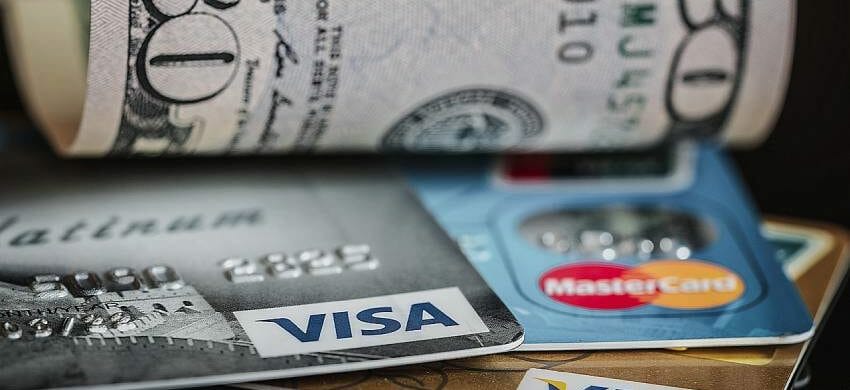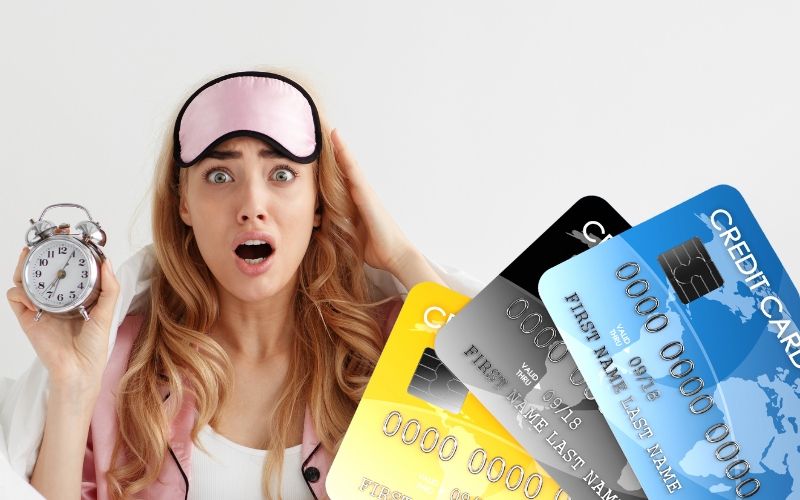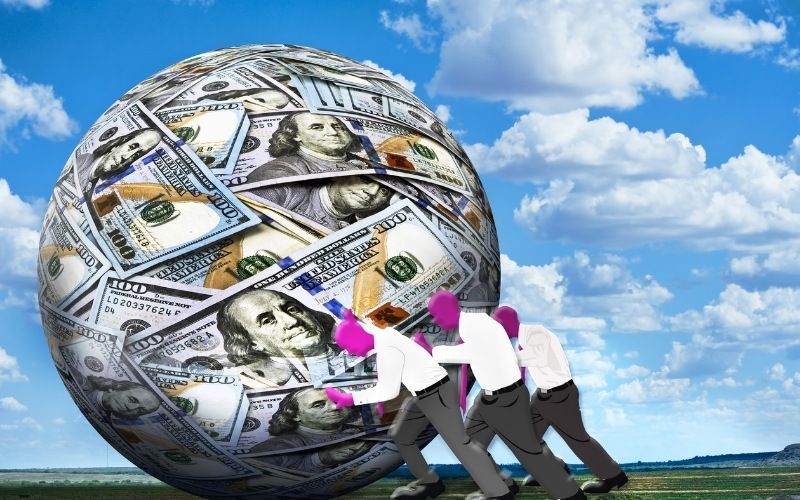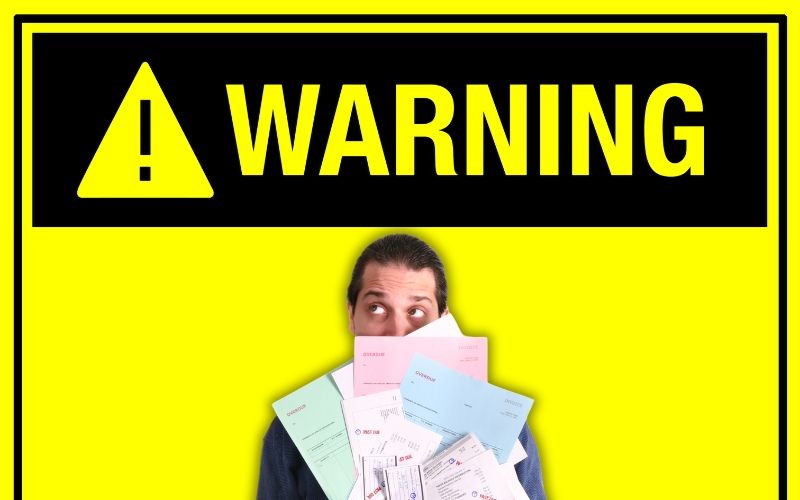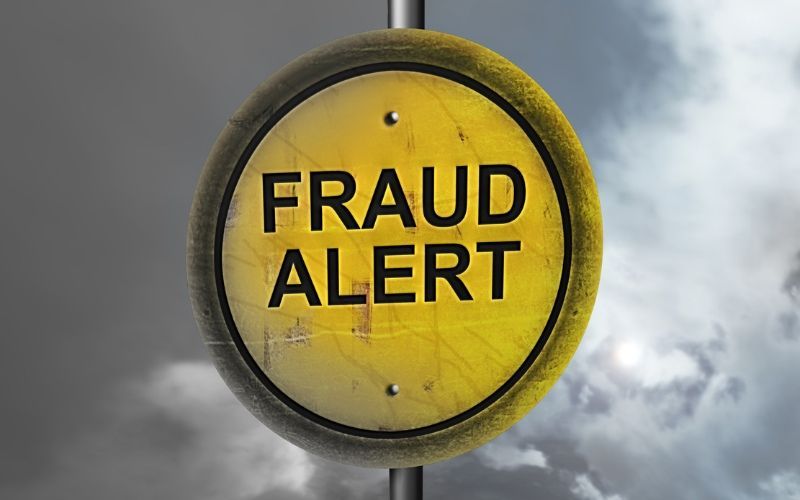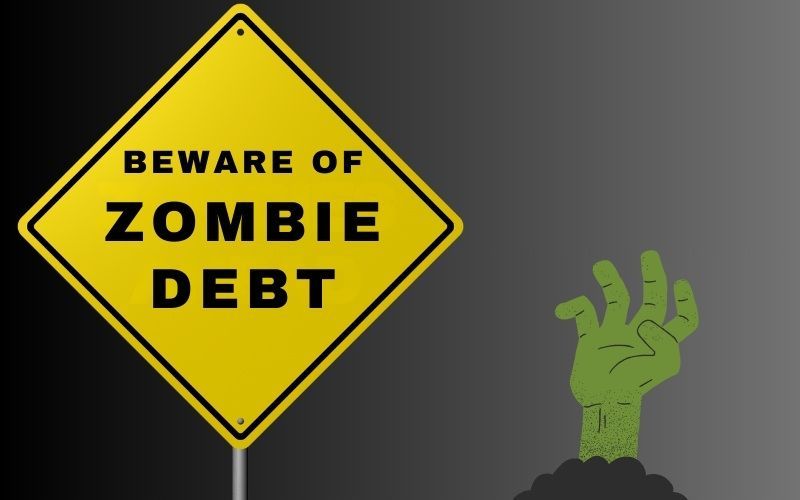10 Reasons To Use Your Credit Card More Often
Last Updated: March 25, 2024
The Advantages of Increasing Credit Card Use
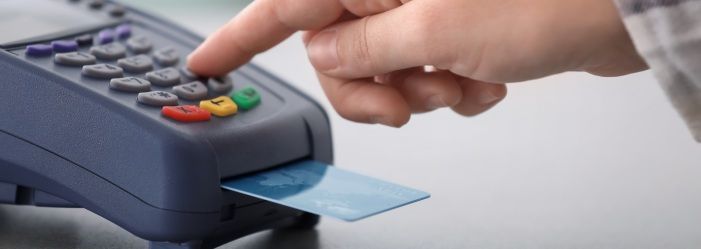
Disclaimer: We are not qualified legal or tax professionals and are not giving advice. Always speak with a qualified professional before making any legal or financial decisions.
In an era where digital transactions are king, credit cards stand out not just for their convenience, but for the myriad benefits they offer to savvy users.
From bolstering your credit score to providing unmatched fraud protection and lucrative rewards, credit cards, when used responsibly, can be a powerful tool in your financial arsenal.
Let's debunk the myths and explore 10 compelling reasons why incorporating your credit card into more aspects of your financial strategy can be immensely beneficial.
Want immediate debt help? Connect with a debt specialist now.
Let’s look at 10 reasons why you should use a credit card.
1. Build Your Credit
Using and paying off your credit card (or at least paying it on time) will help show that you are a responsible user. Keeping your revolving balance low or zero will improve your credit utilization ratio. All this will reflect positively on your credit report.
2. Fraud Protection
If someone hijacks your credit card, it is very easy to dispute the fraudulent purchases. Credit card companies will also call you if they notice what seems to be an out-of-character purchase.
3. Track Purchases
Your credit card purchases are easy to track and you can see, immediately and annually, where you are spending your money. It can be very startling to see just how much you spend on what using your credit cards.
4. Sign-On Bonus
Many cards will offer some sort of sign-on bonuses or even 0% APR. Other cards will offer anyone spending certain amounts of money within the first 30 to 90 days can reap rewards.
Here is where you need to be careful because if you are signing up for a credit card because of the signup bonus, you may end up opening too many cards. Not only does this hurt your credit rating each time a new card company pulls your credit report, but you run the risk of building up too much debt in the search for rewards.
5. Reward Points, Cash Back, and Travel Miles
Reward points and cashback are great perks and used properly can be used to redeem some great “gifts” like travel rewards, gift cards, and more. Use your cashback to help pay off your balance and don’t forget to redeem your rewards.
Make sure you understand how their rewards program works. Some cards offer very tricky rewards programs where the rewards are applied to different vendors or different categories on a monthly basis. Tracking can be very time-consuming.
Some rewards are difficult to redeem or you earn things you really didn’t want in the first place. Remember that travel points have blackout dates and expiration dates.
6. Consumer Protections
Among the positive reasons to use a credit card are the protections that you have. If you use a credit card for auto or home repairs and something goes wrong, you have a better chance of disputing the charge and even getting back your money than you do if you pay with cash.
Some credit cards offer travel insurance that will reimburse canceled or shortened trips. Not all do, so check with your card issuer. Some offer rental car insurance or free checked bags on certain airlines.
7. Grace Period
Credit cards offer some sort of grace period, usually 30 days, before charging interest. You can use that to your advantage by making a purchase knowing you will pay it off at the end of the month. This allows you to keep money in savings for a bit longer and make a few pennies in interest.
8. Bargains
If you have been shopping for an item and you know how much it generally costs and you stumble across a good deal on that item, using a credit card is probably the best way to purchase it. Most people don’t carry around large amounts of cash in case they see a good bargain.
Be careful because there’s a reason online retailers would like for you to save your credit card information on file to allow for easy future purchases. It makes that impulse shopping spree that much easier – just click and pay. Unfortunately, you can easily overspend without much effort. This can lead to debt.
9. No-Return Protection
Occasionally, using a credit card to buy items with a no return policy can help you recover the cost, or part of it if the item doesn’t work or you have or you are overcharged. Just file a dispute with your credit card. The protections may extend to damaged lost or stolen items or offer an additional warranty. Just make sure to always check the fine print!
10. Avoid Banking Fees
Debit cards often come with overdraft charges and ATM fees. By using credit cards, you can avoid these extra charges and save a bit of money. Always read the fine print to make sure that your credit card doesn’t come with annual fees and always pay your bill on time.
When You Need a Credit Card
Airlines, car rentals, and hotels all required a piece of plastic to buy tickets or rent a car or room. You can use a debit card to book a room, but the company will probably put a hold on your card and you may suddenly find yourself short of cash. Most credit cards are easy to use overseas and are far more secure than carrying cash. If you are purchasing a big ticket item, a credit card will offer additional consumer protections.
When You Do Not Need a Credit Card
If you use a credit card to make up shortfalls in your income or can’t pay off your balance each month, you do not need to whip out your credit card for every purchase. Instead, redefine how you spend money and pay off the credit card balance.
Whether or not you should use a credit card to pay for your purchases is up to you and your spending habits. Just remember that credit cards can get you into serious debt very quickly!
This is because:
- Hotels and rental car companies will place a hold on your credit card for incidentals. This hold is usually $200 or more and can tie up funds if placed on a debit card.
- Credit cards allow hotels and rental companies to easily charge your card later for damages or outstanding balances without needing to track you down.
- International travel often requires credit cards, as debit cards and checks have more limited use overseas.
So when making travel plans and reservations, be prepared with a general-purpose credit card on hand.
When You Do Not Need a Credit Card
If you use a credit card to make up shortfalls in your income or can’t pay off your balance each month, you do not need to whip out your credit card for every purchase. Instead, redefine how you spend money and pay off the credit card balance.
Whether or not you should use a credit card to pay for your purchases is up to you and your spending habits. Just remember that credit cards can get you into serious debt very quickly!
Debt Management Plans
Debt management plans (DMPs) are an alternative option to consider beyond debt settlement. With a DMP, you work with a credit counseling agency that gets your creditors to agree to reduced interest rates and waived fees. The agency then consolidates your debt and helps set up a repayment plan over 3-5 years.
DMPs allow you to repay debt while avoiding bankruptcy. They help simplify payments by consolidating multiple debts into one monthly payment. Interest rates and fees are reduced so more of your payment goes to the principal.
However, DMPs have drawbacks too. Not all creditors are willing to make concessions. Your credit score can still be negatively impacted while on a DMP. And if you don't stick to the repayment plan, creditors may go back to charging higher rates.
When Debt Settlement May Not Work
While debt settlement can be an effective way to resolve unmanageable debt for some, it is not the right path forward in every situation.
Ask yourself the following questions:
- Is your total debt very low (less than $7,500)? Debt settlement works best for larger debt amounts. For lower balances bankruptcy or debt management may be better options.
- Do you have assets a creditor could seize if you default, like a home or car? Debt settlement requires falling behind on payments, which puts assets at risk.
- Is your income unstable or unable to cover basic living expenses? Lenders in a debt settlement plan need to see that you have income to make settlement payments.
If you answered yes to any of the above, debt settlement may not provide the debt relief you need.
FAQs
-
Will using my credit card lower my credit score?
As long as you pay your balance off in full each month, increased credit card usage should not lower your score. Utilization rate (balance divided by limit) is important, so increased spending could temporarily impact your utilization. But regular on-time payments will build a positive credit history.
-
How many credit cards should I have open at once?
As a general rule, 3-4 open credit cards can provide enough variety for different rewards programs without becoming difficult to manage. Too many cards means having to track several statements and payment due dates each month.
-
Can using my rewards cards for everything lead me to overspend?
Yes - earning attractive rewards for all purchases may tempt you to buy items you don’t need. Carefully monitor spending each month to ensure you have the cash to pay off balances in full. Rewards don’t outweigh carrying debt and interest charges.
-
Should I avoid store credit cards even if they offer discounts?
Store cards typically have high-interest rates and low credit limits. The initial discount often does not outweigh paying ongoing high rates if carrying a balance. Consider general rewards cards first. Only open a specialized retail card if you will pay it off immediately each month.
Conclusion
Credit cards offer many benefits compared to cash or debit when used responsibly. Rewards, fraud protection, credit building, and convenience are compelling reasons to rely on credit. However, carrying debt and interest charges erases any of those advantages. Make a pledge to pay balances in full each month. Utilize grace periods to your advantage as well.
While credit cards facilitate easy spending, be deliberate about what purchases you make. Tracking expenses is vital - leverage the detailed statements provided. Budget based on actual income, not on available credit. If debt becomes unmanageable, services like debt management and settlement through reputable companies can help. Don’t hesitate to seek the required relief. Ongoing communication with creditors leads to resolution.
In short - credit cards are useful financial tools but require discipline. Spend mindfully, pay on time and in full, and monitor spending habits. Doing so will allow you to unlock all the conveniences credit cards offer.
Pacific Debt, Inc.
If you have overused your credit cards and are knee-deep in debt, you may need more help. If you’d like more information on debt settlement and have more than $10,000 in credit card debt that you can’t repay, contact Pacific Debt, Inc. We may be able to help you become debt-free in 2-4 years
*Disclaimer: Pacific Debt Relief explicitly states that it is not a credit repair organization, and its program does not aim to improve individuals' credit scores. The information provided here is intended solely for educational purposes, aiding consumers in making informed decisions regarding credit and debt matters. The content does not constitute legal or financial advice. Pacific Debt Relief strongly advises individuals to seek the counsel of qualified professionals before undertaking any legal or financial actions.
Are you ready for debt relief help now?
Get Free Consultation- Accredited by Better Business Bureau with BBB A+ rating(4.93 rating and 1678 reviews)
- US News and World Reports and Bankrate ranked Pacific Debt Relief as one of “The Best Debt Relief Companies of 2024”
- 6.9 star rating by BestCompany.com (over 2379 client reviews)
- 4.8 star rating by TrustPilot based (over 1613 verified consumer reviews)
- ConsumerAffairs.com Accredited (over 544 verified reviews with an average rating of 5 stars)
- A Top 10 Rated Company by TopTenReviews.com , ConsumersAdvocate.com and Top10debtconsolidation.com
- 4.6 star rating by Google (229 client reviews)
- 100% rating by SuperMoney (9 client reviews)

Pacific Debt Relief
750 B Street Suite 1700
San Diego, CA 92101
Hours of Operation
Mon-Thurs: 6am - 7pm PST
Friday: 6am - 4:30pm PST
Saturday: 7:30am - 4:30pm PST
Clients
Phone: (877) 722-3328
Fax: (619) 238-6709
Email: cs@pacificdebt.com
Non-Clients
Phone: (833) 865-2028
Fax: (619) 238-6709
Email: inquiries@pacificdebt.com
"To eliminate debt one household at a time, while placing people first." - Pacific Debt
© 2024 Pacific Debt Inc. dba Pacific Debt Relief, all rights reserved.
California Privacy Policy |  Do Not Sell My Personal Information
Do Not Sell My Personal Information
GLBA Privacy Notice | CDRI Accredited Member
*We do not discriminate on the basis of race, color, religion, sex, marital status, national origin or ancestry.
*Please note that all calls with the company may be recorded or monitored for quality assurance and training purposes.
*Your visit to our website may be monitored and recorded from essential 3rd party scripts.
*Clients who make all their monthly program deposits pay approximately 50% of their enrolled balance before fees, or 65% to 85% including fees, over 24 to 48 months (some programs lengths can go higher). Not all clients are able to complete our program for various reasons, including their ability to save sufficient funds. Our estimates are based on prior results, which will vary depending on your specific circumstances. We do not guarantee that your debts will be resolved for a specific amount or percentage or within a specific period of time. We do not assume your debts, make monthly payments to creditors or provide tax, bankruptcy, accounting or legal advice or credit repair services. Pacific Debt is not a credit repair firm nor do we offer credit repair services. Our service is not available in all states and our fees may vary from state to state. Please contact a tax professional to discuss potential tax consequences of less than full balance debt resolution. Read and understand all program materials prior to enrollment. The use of debt settlement services will likely adversely affect your creditworthiness, may result in you being subject to collections or being sued by creditors or collectors and may increase the outstanding balances of your enrolled accounts due to the accrual of fees and interest. However, negotiated settlements we obtain on your behalf resolve the entire account, including all accrued fees and interest. C.P.D. Reg. No. T.S. 12-03825.
